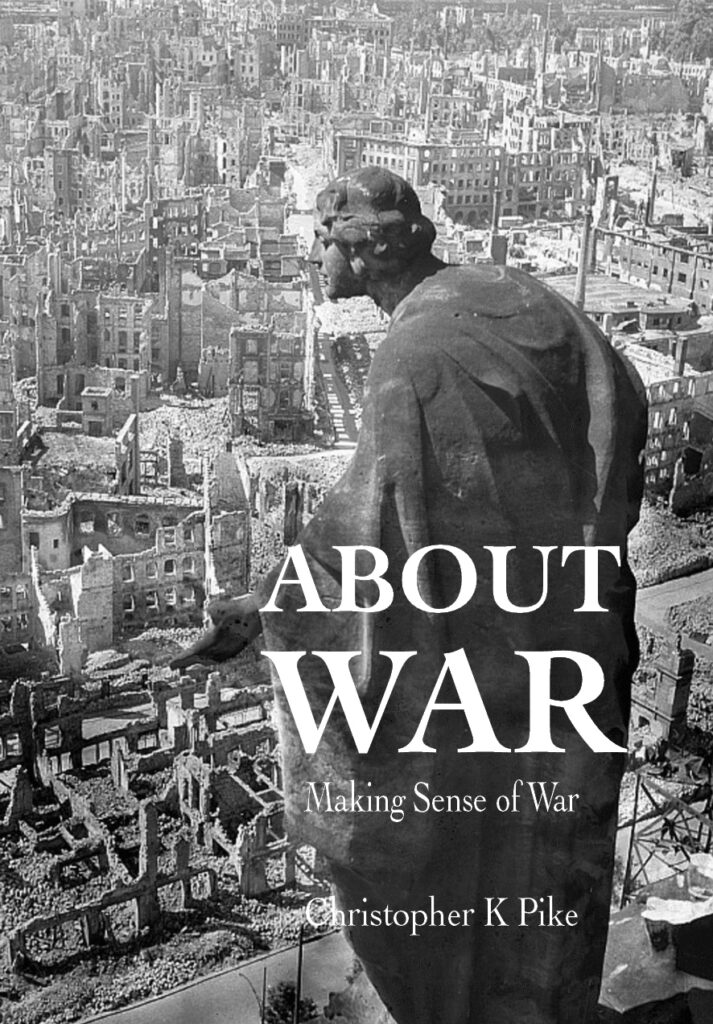Book One: About War

What the readers say…
‘…an interesting and informative start to the series…’ (Making Sense of War)
‘…an original and lively study…’
‘…concise, comprehensive, approachable read…’
‘…this book is incredibly interesting, well researched and most importantly well written…’
‘…what a fascinating and intensively researched book…’
‘… a sharp, original study that makes the complexities of war understandable without oversimplifying…’
‘…an extremely useful and important text for a complex topic, well written and interesting…’
‘…not your normal recount of wars gone by – this book dissects the notion of war…’
About War introduces the central distinction between war and warfare. War is defined as the hostile use of organised violence for political ends; warfare concerns the conduct of that violence through tactics, logistics, and operations. By tracing this distinction through history – from prehistoric times to Clausewitz’s trinity to the failures of Korea, Vietnam, Iraq, and Libya — I show why fewer than half of wars achieve their original political objectives. I examine Civil–Military Relations, the misuse of strategy, and the dilemmas of nuclear deterrence, arguing that victory must be accompanied by peace and justice if it is to be meaningful.
Chapters
| 1 | War in History: The Persistence of War |
| 2 | What is War? |
| 3 | Causes of War; Causes of Peace |
| 4 | The International Context |
| 5 | Politics and ‘Politics’ |
| 6 | Strategy as the Link between Politics and the Use of Armed Force |
| 7 | Civil–Military Relations and Governance |
| 8 | Legitimate or Illegitimate War? |
| 9 | Technology and the Military–industrial Complex |
| 10 | Nuclear Considerations |
| 11 | The Future for War |
| 12 | Reconciling the Narratives |
| Appendices |